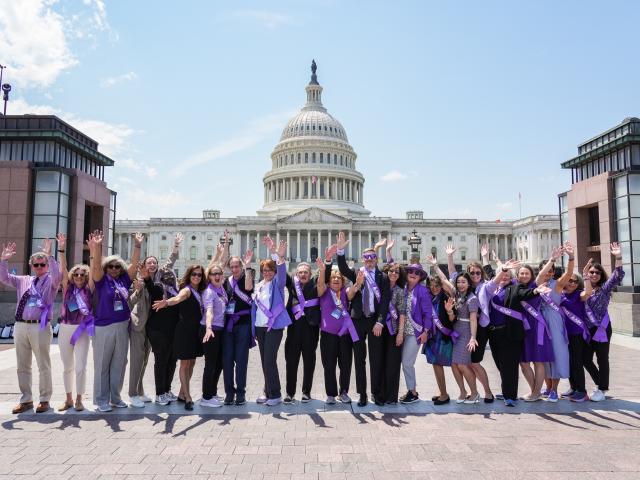WASHINGTON, D.C., September 10, 2025 — The House Appropriations Committee advanced a $15 million increase for Alzheimer’s and dementia research funding at the National Institutes of Health (NIH) for Fiscal Year 2026 (FY26).
“Over the last decade, we have made significant scientific progress thanks to strong bipartisan dedication to dementia research,” said Robert Egge, Alzheimer’s Association chief public policy officer and Alzheimer’s Impact Movement (AIM) president. “As our nation faces a growing Alzheimer’s crisis in the years ahead, it is now more important than ever that we accelerate innovation to reduce long-term costs.”
This development comes following action in July, when the Senate Appropriations Committee advanced a $100 million increase for dementia research. As the FY26 appropriations process continues in both the House and Senate, the Alzheimer’s Association and AIM will work with Congress to ensure the strongest possible investment in the fight against Alzheimer's and other dementia.
“On behalf of the Alzheimer’s community, the Alzheimer’s Association and AIM will continue to work with Congress to sustain our nation’s investment in the fight against this devastating disease,” said Egge.
Throughout the year, Alzheimer’s Association and AIM advocates have held hundreds of meetings with their elected officials sharing their personal stories of how Alzheimer's has affected them and urging them to increase research funding at the NIH.
In addition to supporting research into Alzheimer’s and all other dementia, the appropriations package includes $39.5 million to fund the BOLD Infrastructure for Alzheimer’s Act. Passed with overwhelming bipartisan support in December 2018 and unanimously reauthorized last year, the BOLD Act directs the Centers for Disease Control and Prevention (CDC) to strengthen the public health infrastructure across the country by implementing effective Alzheimer's interventions such as increasing early detection and diagnosis, reducing risk, and supporting the needs of caregivers.
“Alzheimer’s disease isn’t just a health crisis. It’s a fiscal crisis. As a leading driver of steadily rising federal and state budgets, untreated Alzheimer’s is significantly expanding America's growing debt,” said Egge. “The bipartisan path forward is clear: Sustained NIH investment in Alzheimer’s and dementia research.”
Since the passage of the Alzheimer's Accountability Act, legislation championed by the Alzheimer's Association and AIM and reauthorized last year, NIH scientists have — through an annual professional judgment budget — requested from Congress the resources needed to meet the goals outlined in the National Plan to Address Alzheimer’s Disease. The Alzheimer’s Association and AIM have been urging Congress to increase Alzheimer’s and dementia research by $113.485 million, which is consistent with the request made by the NIH through its professional judgment budget.
As the prevalence and cost of this devastating disease continue to grow each year, the Alzheimer’s Association and the Alzheimer’s Impact Movement (AIM) are urging Congress to continue to prioritize investing in the fight against Alzheimer’s and other dementia.
